Creative Strategies
Matthias helps to choreograph processes and methods in a designerly way to develop actionable strategies and future-oriented practices for brands and service providers.
Sustainable Futures with Toshiba
Envisioning future scenarios within logistics and postal services for the year 2040.
Four-Month Research Project, 2022-2023
(For and with Köln International School of Design, Chiba University Japan & Toshiba Design Division)
Expertise: Service Design, Workshop Facilitation
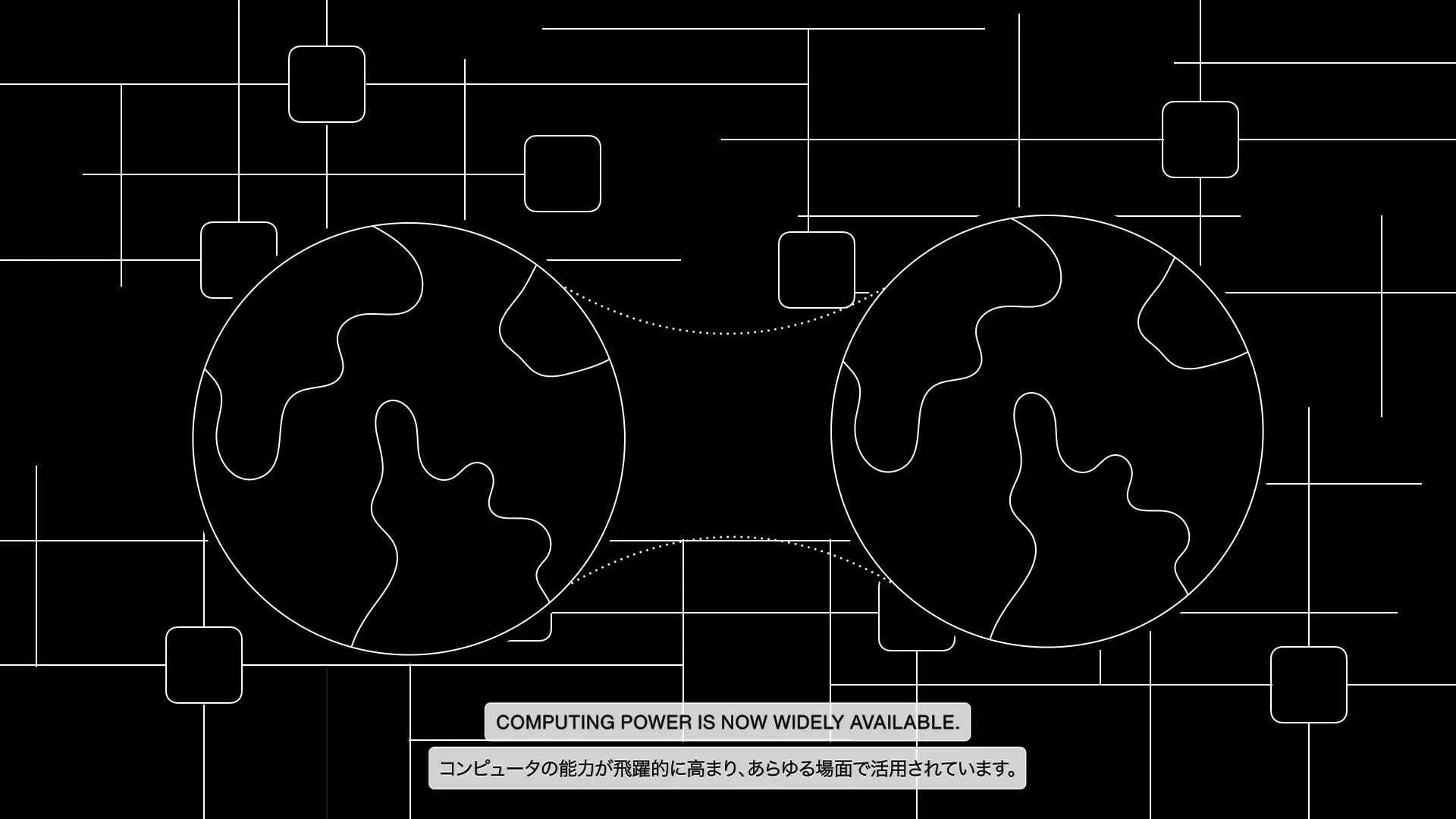
Still image of the developed future scenario, delivered as an explanatory video.
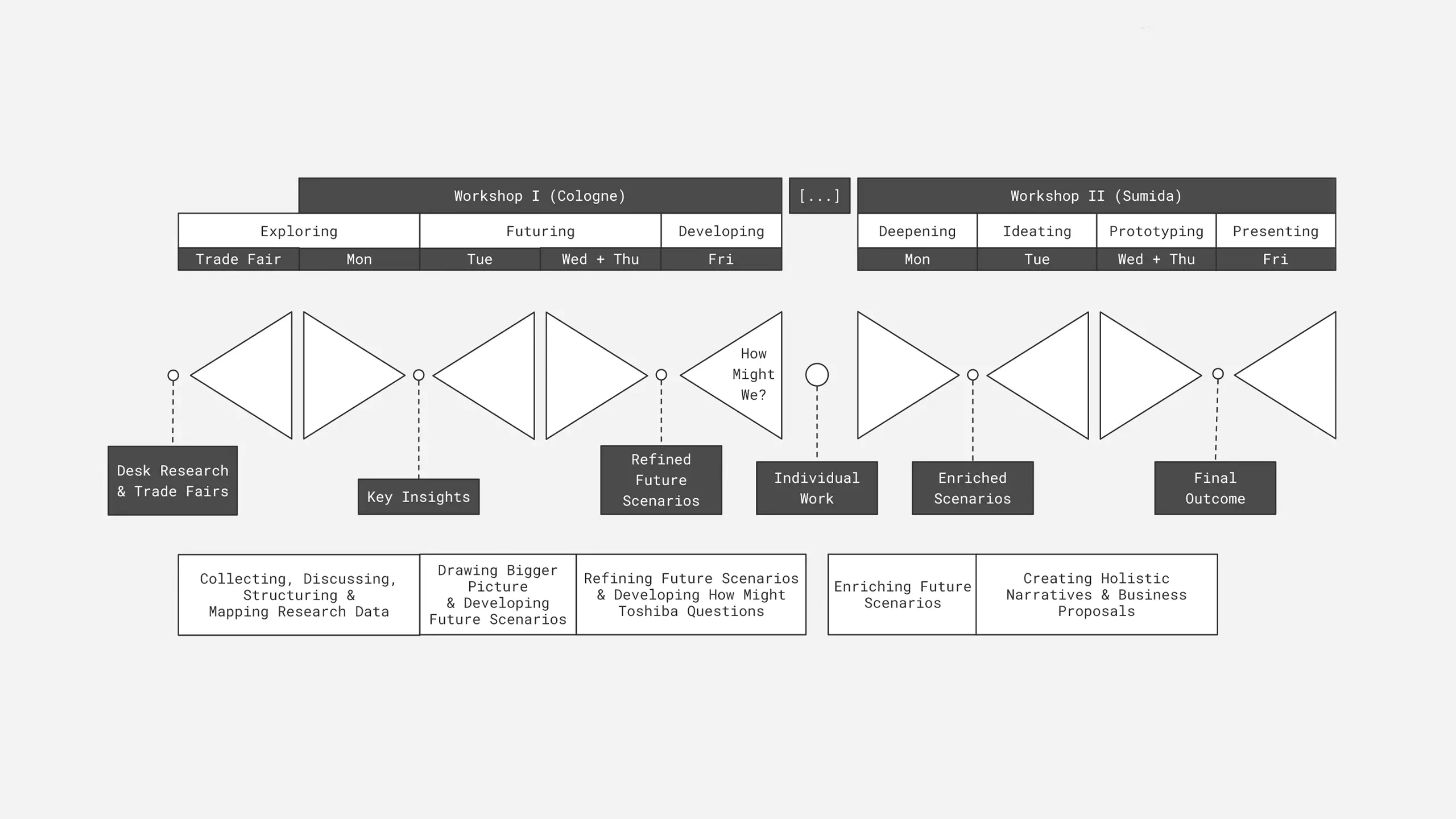
Overview of the workshop structure developed for two one-week intensive co-creation workshops held in Cologne, Germany and Sumida, Tokyo, Japan.
Project Brief:
Envision the "logistics of the future" through co-creation and the development of design methodologies for future insights.
Project Focus:
Emphasis on society, sustainability, and ethics in relation to the advancement of technology.
Approach:
1. Topic exploration and data gathering trough desk and field research, as well as expert interviews.
2. Analysis of the strengths, weaknesses and potential of Toshiba's role in this service sector.
3. Adaptation of methods from trend research, future forecasting, and speculative design to the service design process.
4. Development of new challenge-specific design methods & service prototyping
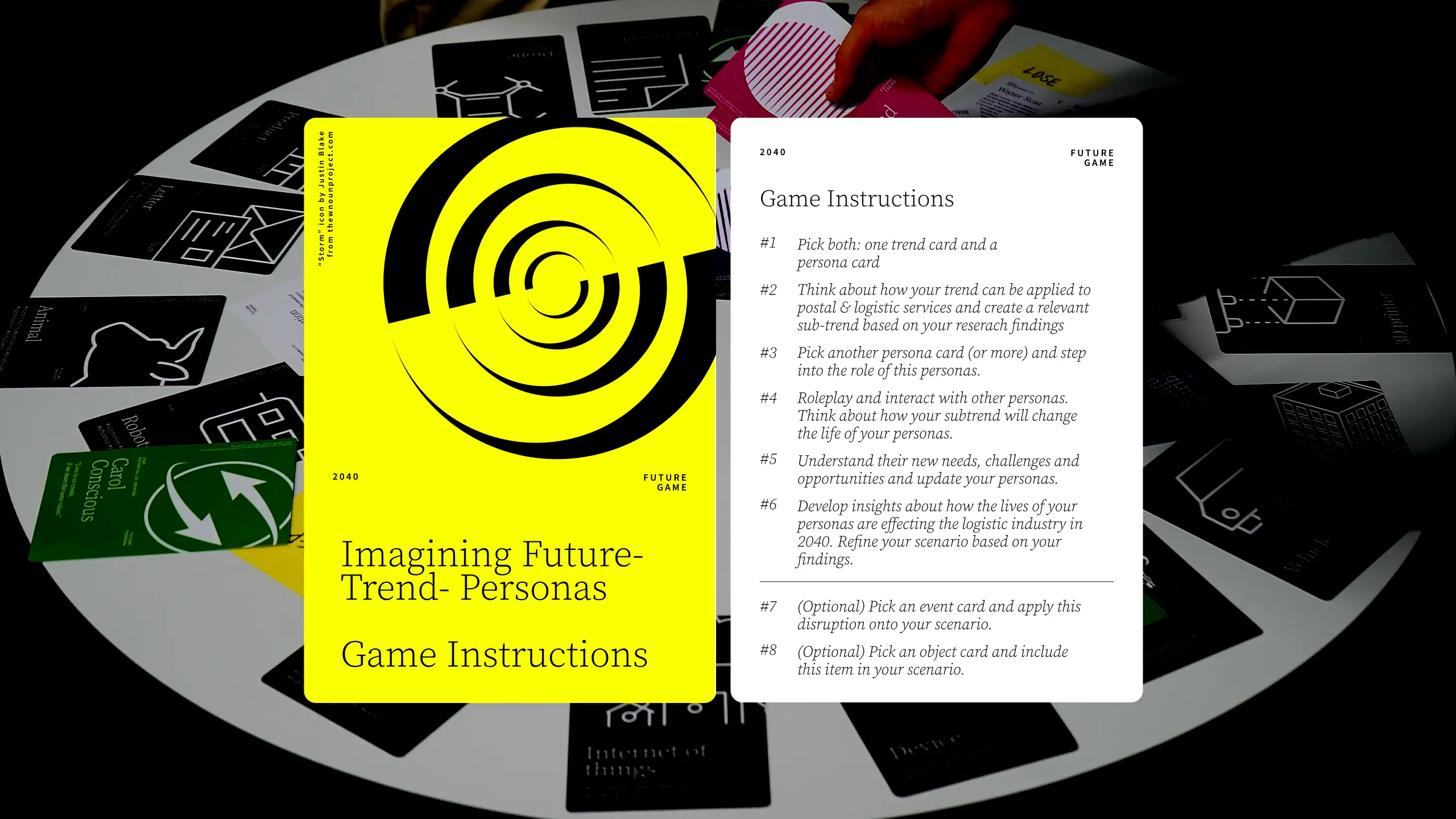
Example of game instructions for the "Future Intervention Game", designed after the first workshop phase to further enrich the scenario development and to playfully interfere with current thought patterns.
Final Deliveries:
1. Future scenario narrative based on a fully automated and augmented world, where logistics is now understood as mobility through data transfer in a circular economy.
2. Developed business opportunities and co-creation partner proposals for consumer-facing software services.
3. Innovation method prototypes for insight discovery.
4. Possible future software service examples.
Project Participants:
KISD: Prof. Birgit Mager, Jihee Hwang, Omid Fröhlich, Paul Kundt, Polina Toumey, Lisa Hunger, Matthias Grund
Chiba: Prof. Shinji Watanabe, Mizuki Yoshida, Iori Nishio, Mihoko Tanaka, Reina Yamamoto, Kazuki Kenmotsu, Shuntaro Inagaki
Toshiba: Keiji Ogata, Koji Ogawa
(full case study available upon request)
Future Financial Services for Bank Hapoalim (Israel)
Developing service concepts that rebuild trust.
Month-Long Research Project, Week-Long Intensive Workshop, 2016
(For and with Köln International School of Design, Shenkar College of Engineering and Design & Bank Hapoalim)
Expertise: Service Design
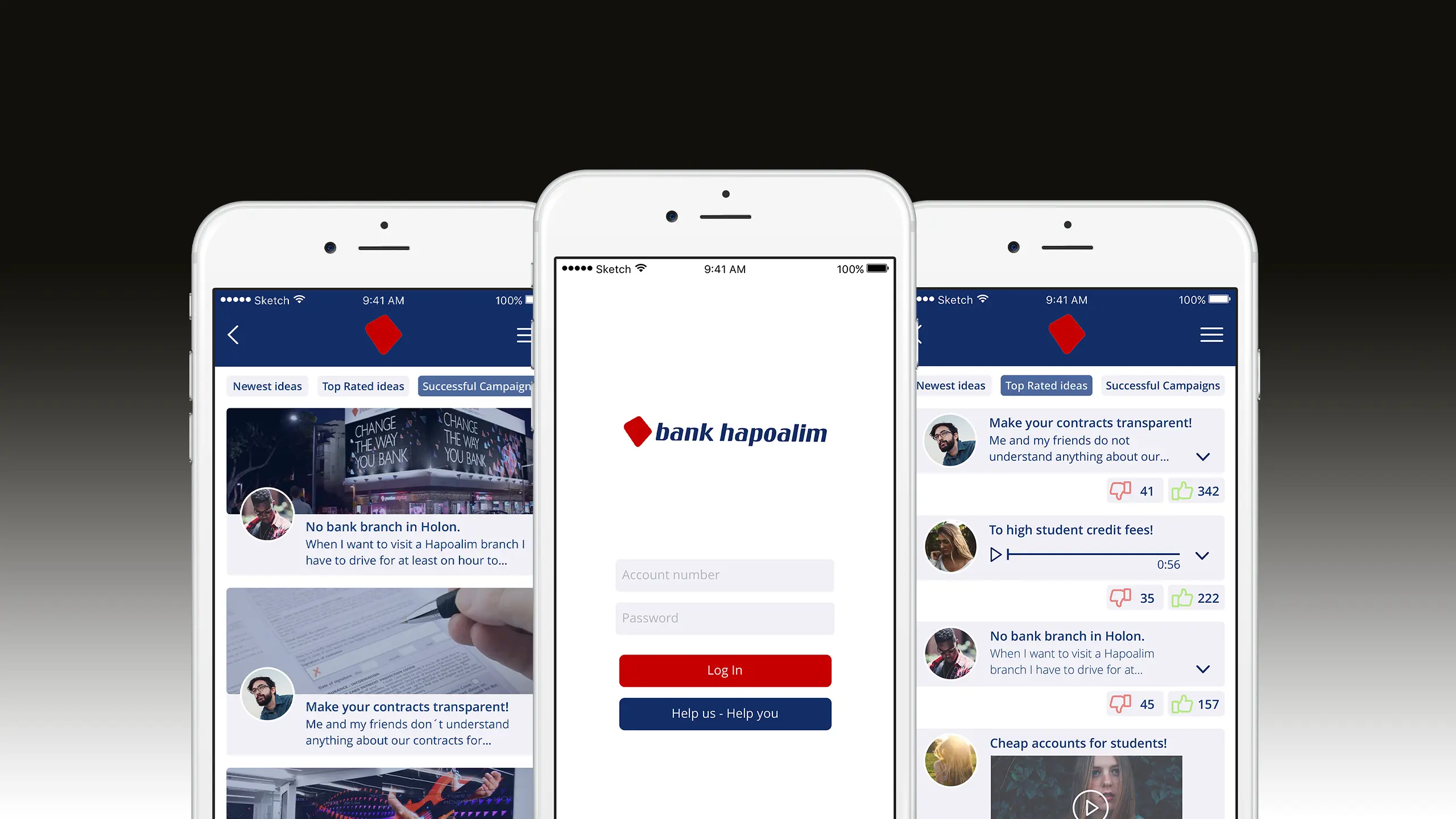
App concept prototype of "Help us - Help you", a digital service for idea sharing and community voting.
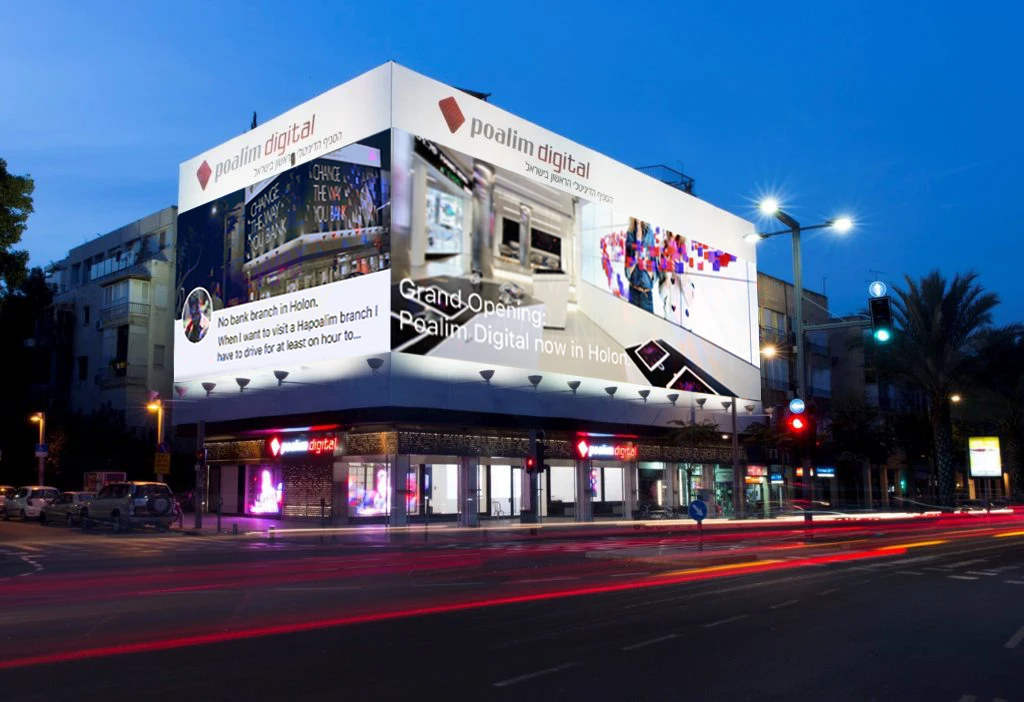
Mockup of the Poalim Digital branch's display of successfully completed campaigns.
Project Brief:
Development of a new and shiny digital app experience for Millennials.
Development of digital service concepts that rebuild trust and create a trustworthy relationship between customers and the bank.
Field research in Ramat Gan, Israel, uncovered key issues among young Israeli citizens in their relationship with their bank, such as a lack of transparency and trust, uncertainty about their financial future, and a general feeling of being overlooked. This led to a reframing of the original project brief.
Project Focus:
Establishment of a dialog between customers and their bank.
Project Concept:
Provide a platform where customers can express themselves and share their ideas on how to improve the banking experience.
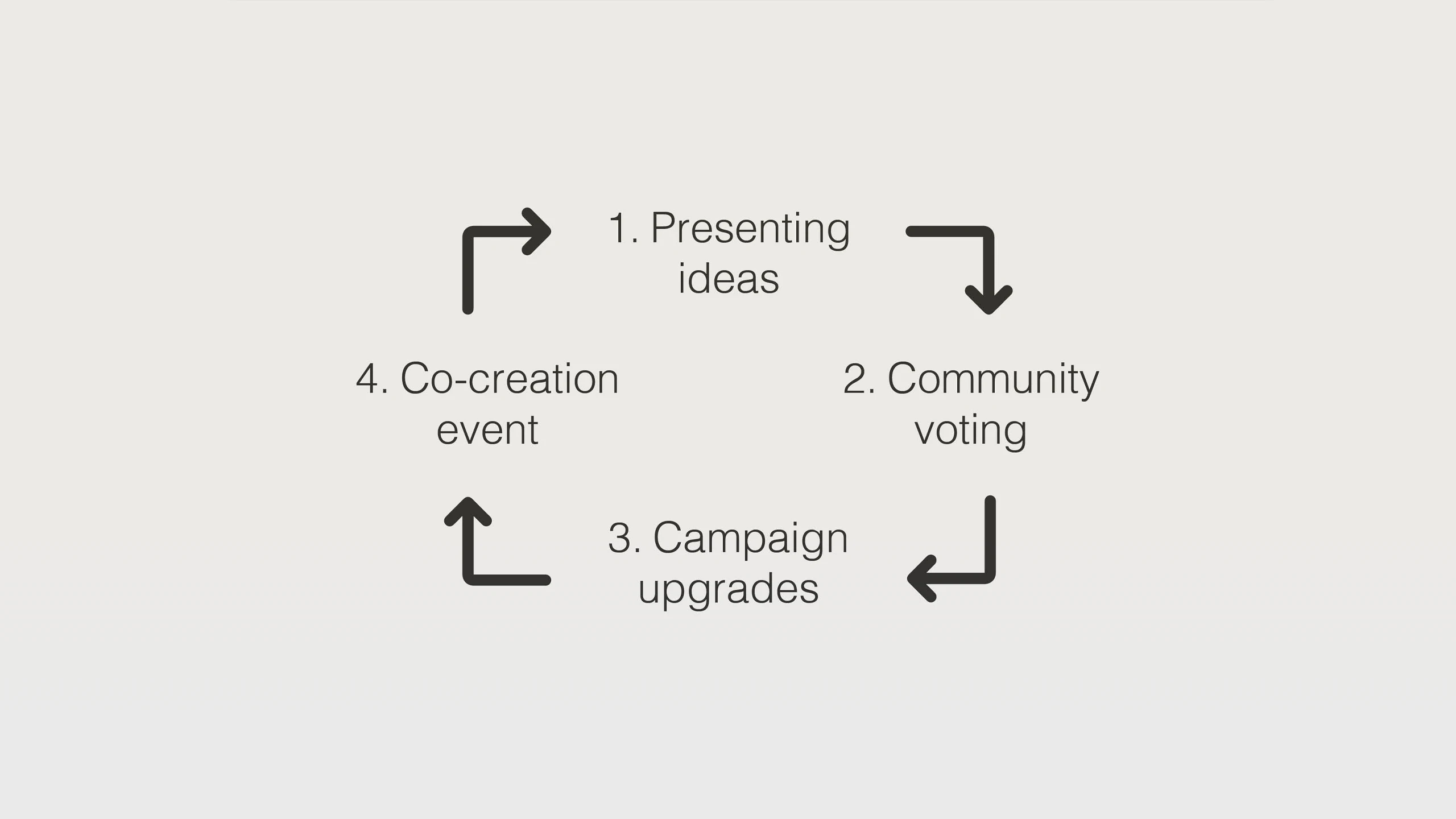
Process from submission of improvement ideas through the app to campaign development and co-created service solutions.
Approach:
1. Deep dive into digital banking by acquiring knowledge of existing digital services and key industry challenges.
2. Gather data by conducting interviews with approximately 30 participants focused on the customer's relationship with their bank.
3. Research analysis, empathy mapping & persona development.
4. Field research in Israel, briefing adaptation, digital service concept development.
5. Visualization of service concepts through prototypes.
Project Participants:
KISD: Prof. Birgit Mager, Dmitrii Kuznetsov, Naja Schulz, Katharina Sook Wilting, Christoph Claus, Joelle Siebenaller, Matthias Grund
Shenkar: Prof. Idan Segev, Elior Karmani, Sahaf Katzav, Guy Kaminer, Matan Klavo, Anat Penig, Inbar Idan, Ido Azaria, Noa Meler, Ruti Zaslavski, Daniel Barash, Yarden Bernstien, Neta Bar-Stav, Sivan Ibel, Ori Oren, Rotem Adrian, Inbar Even-Zur, Tamar Wood-Antel
(full case study available upon request)
Content Strategy for Seidensticker
Content development and alignment across multiple touch points from retail to ecommerce.
Brand Strategy & Art Direction
(With and for Bel Epok, 2019-2021)

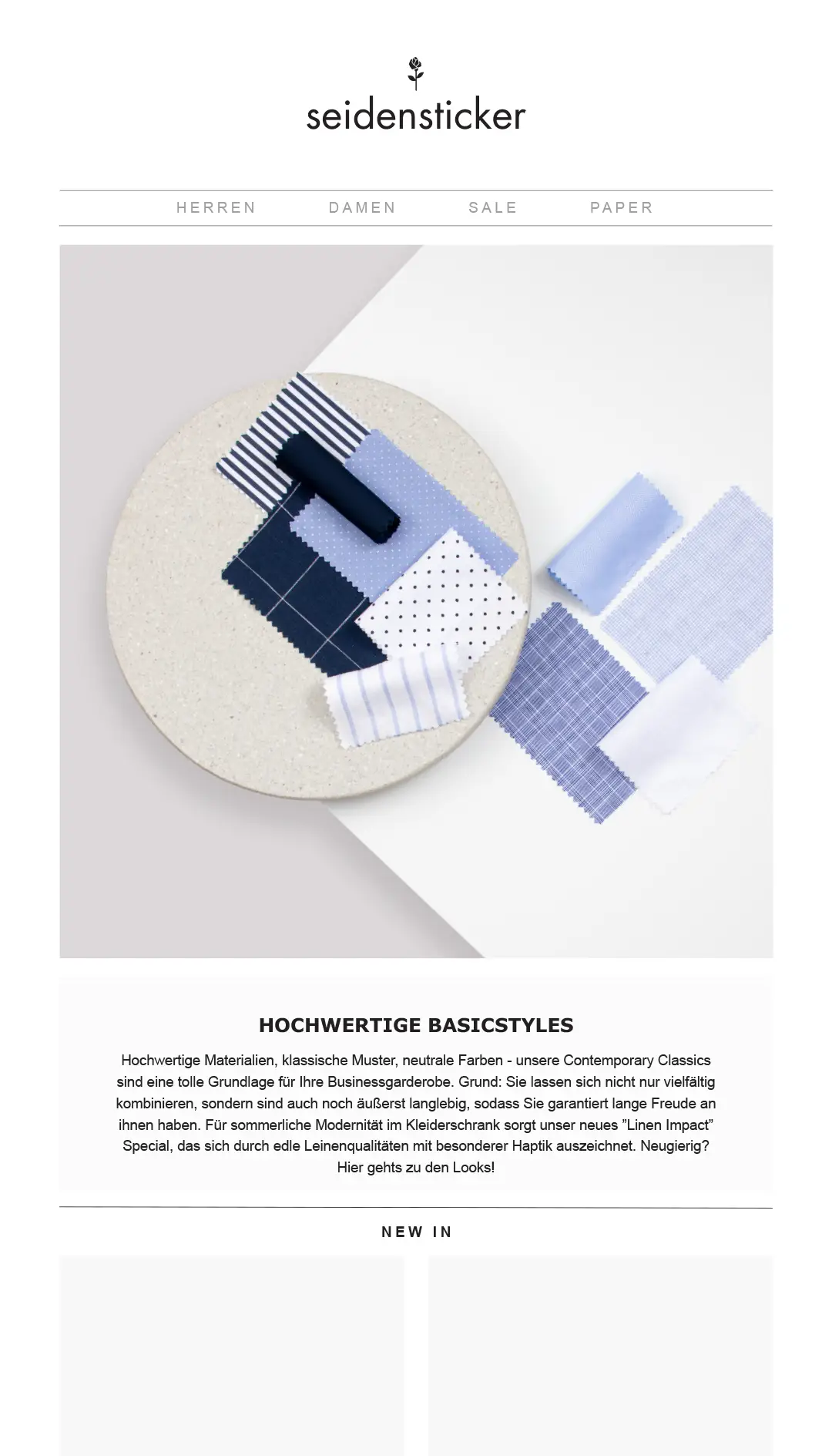
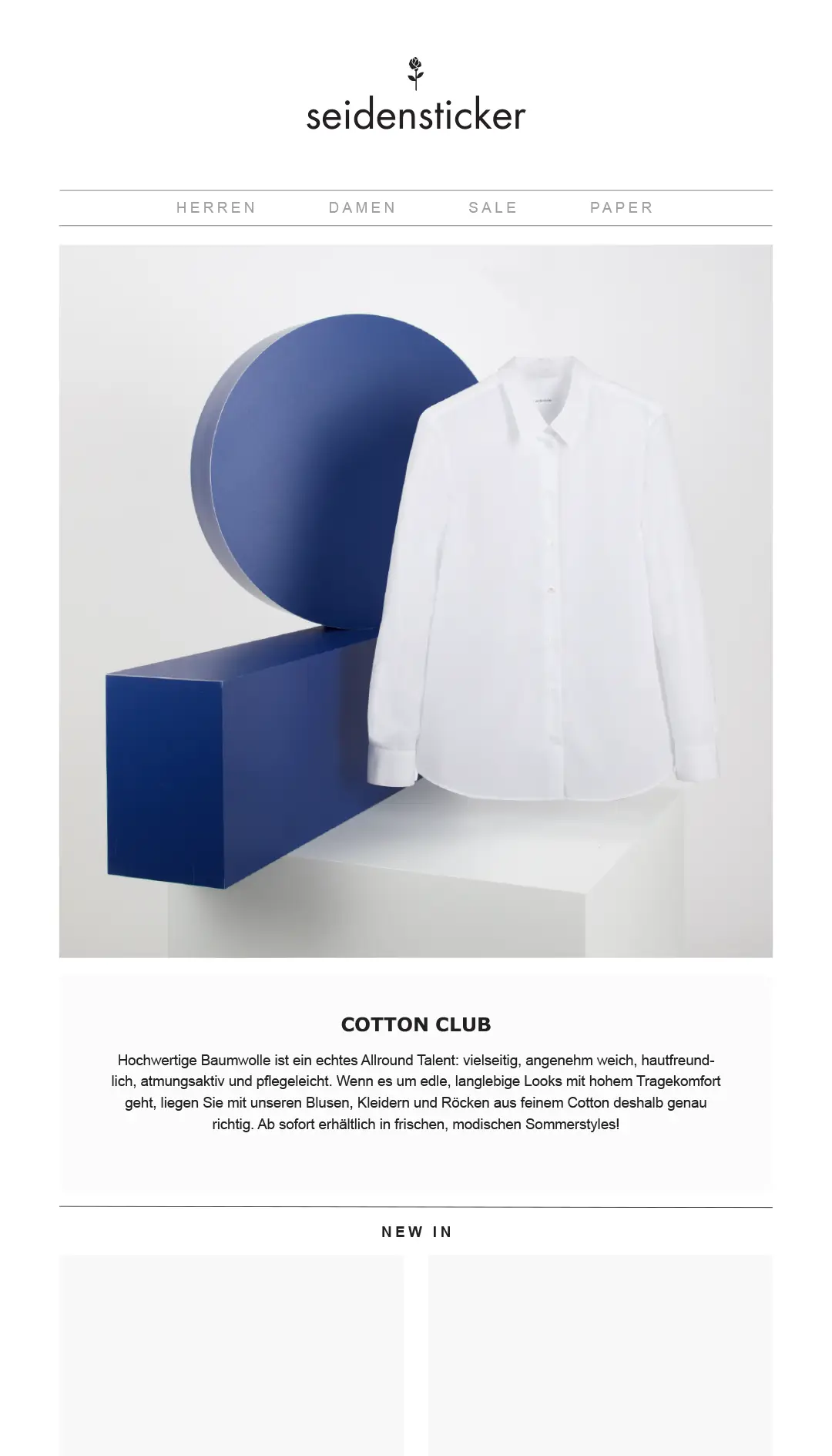
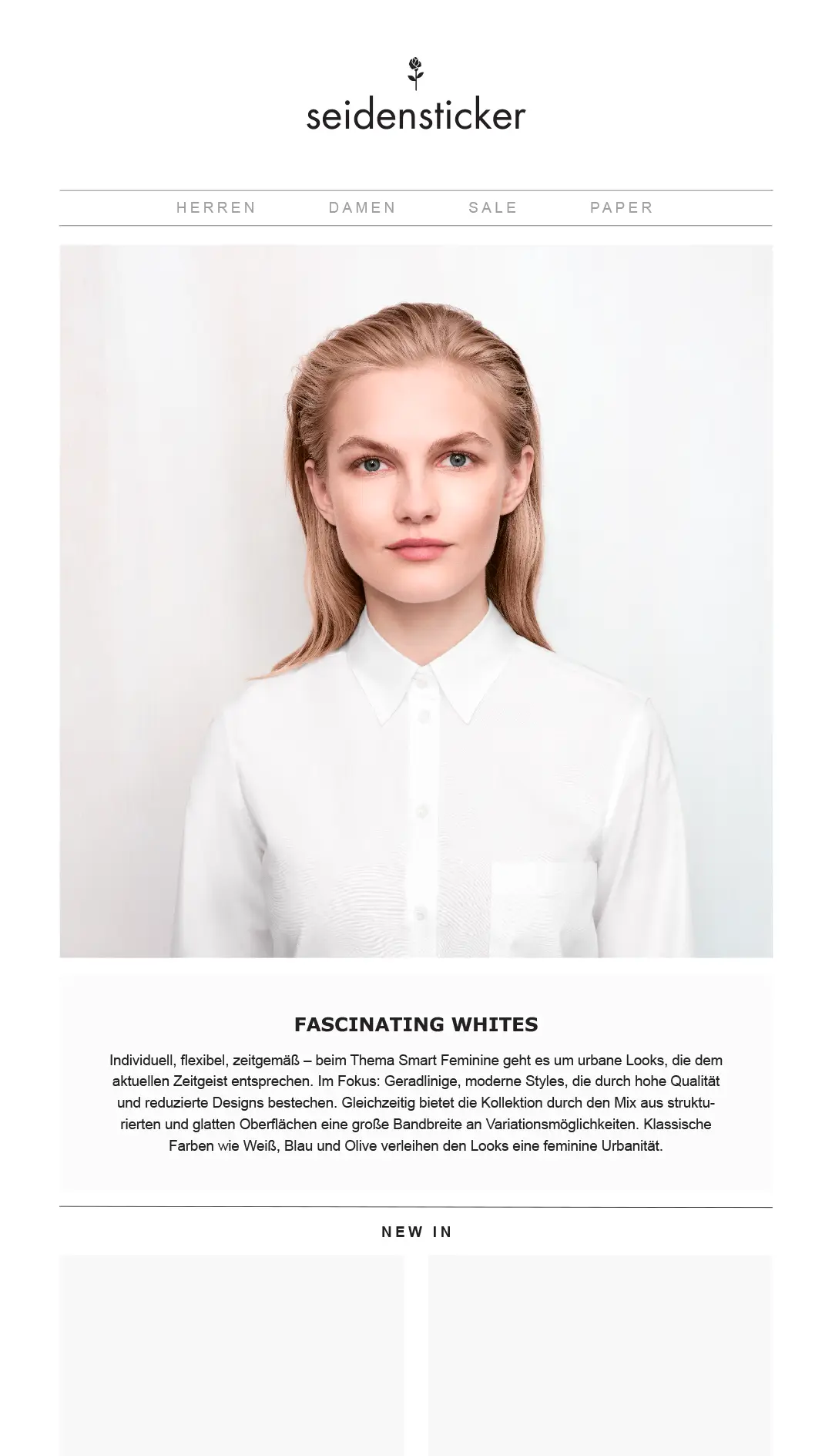
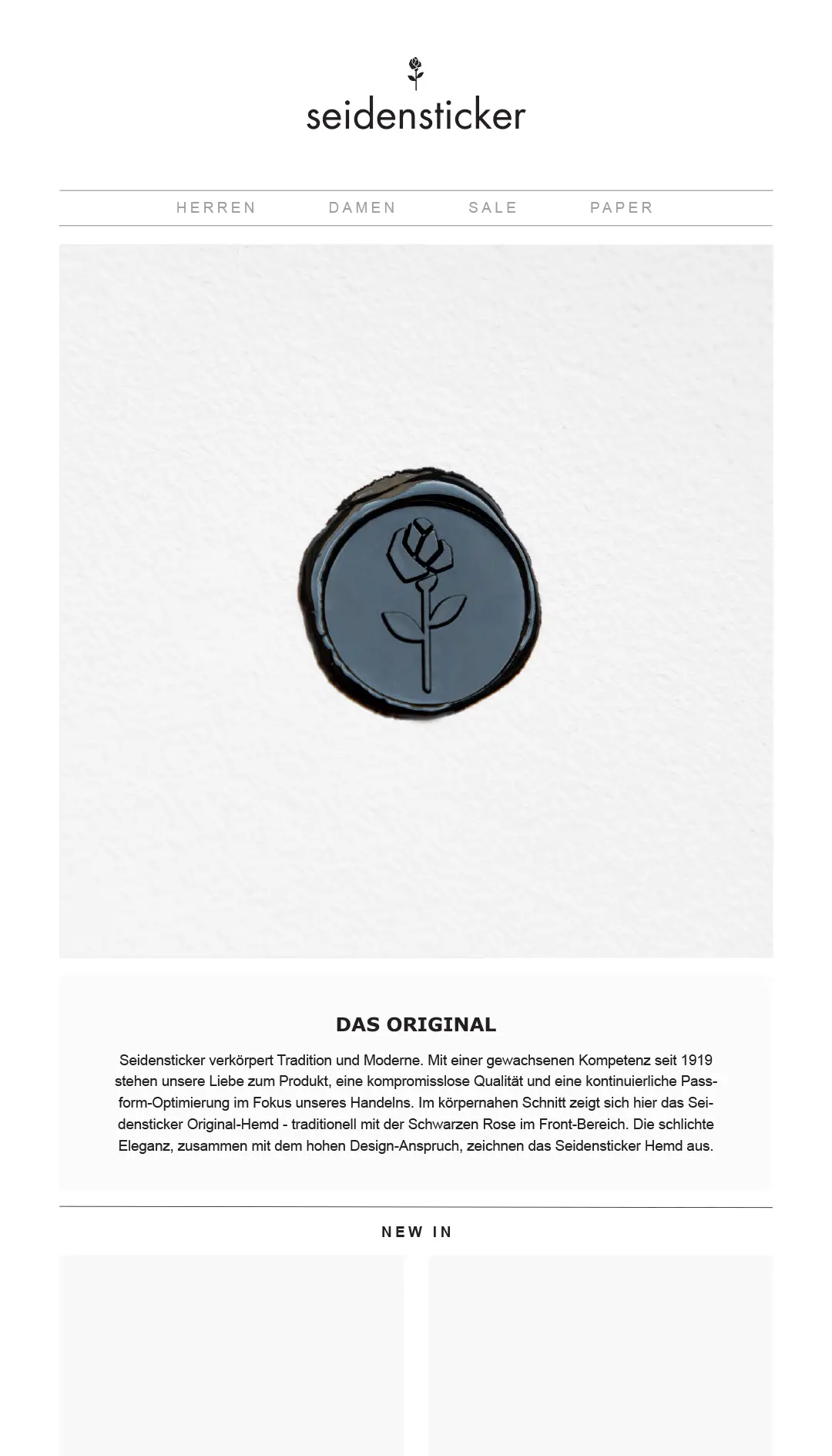
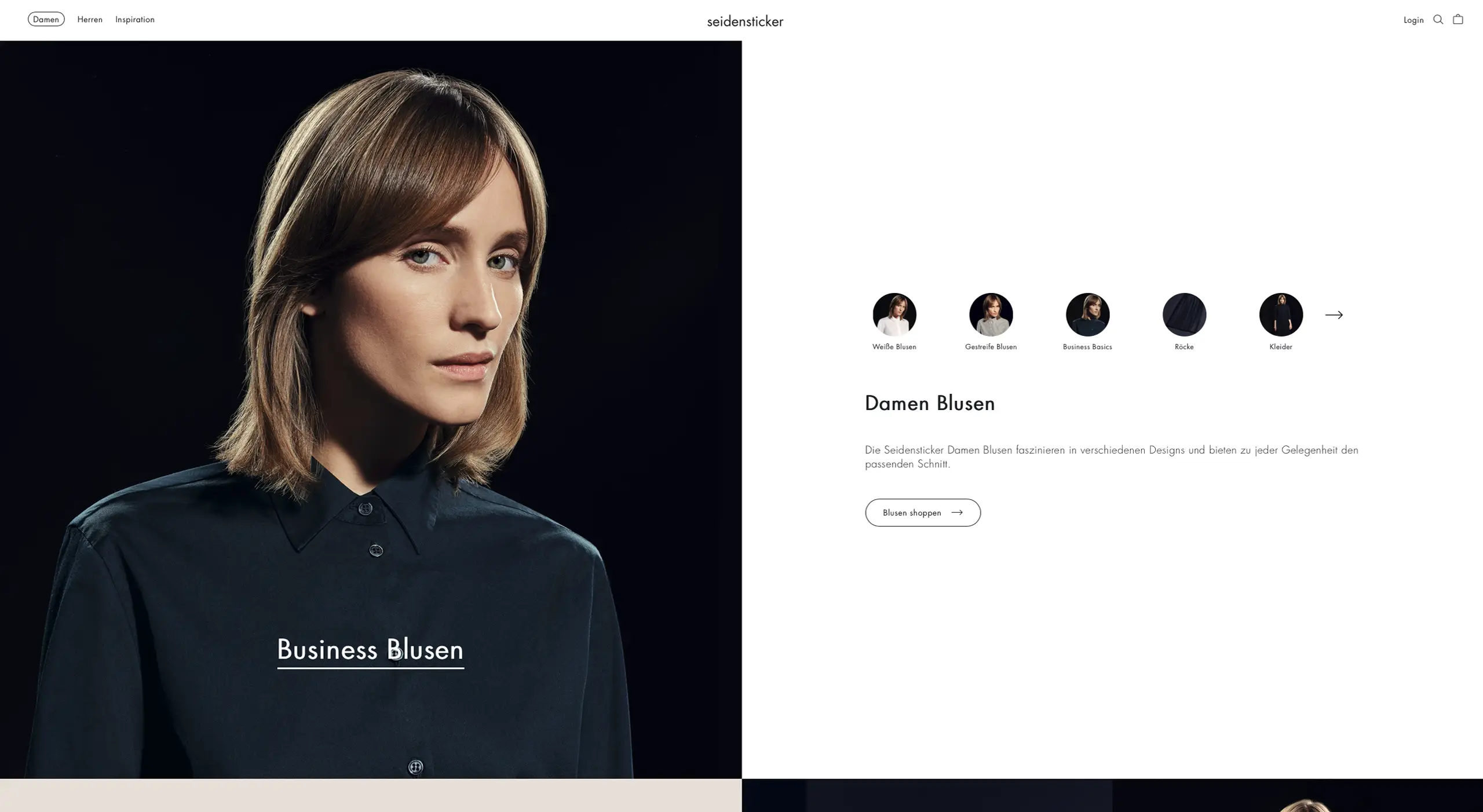
Communicating Democracy with the Austrian Parliament
Exploring new patterns of democratic knowledge transfer.
Week-Long Intensive Workshop, 2017
(For and with Köln International School of Design, C Plus Consultancy & the Austrian Parliament)
Expertise: Service Design
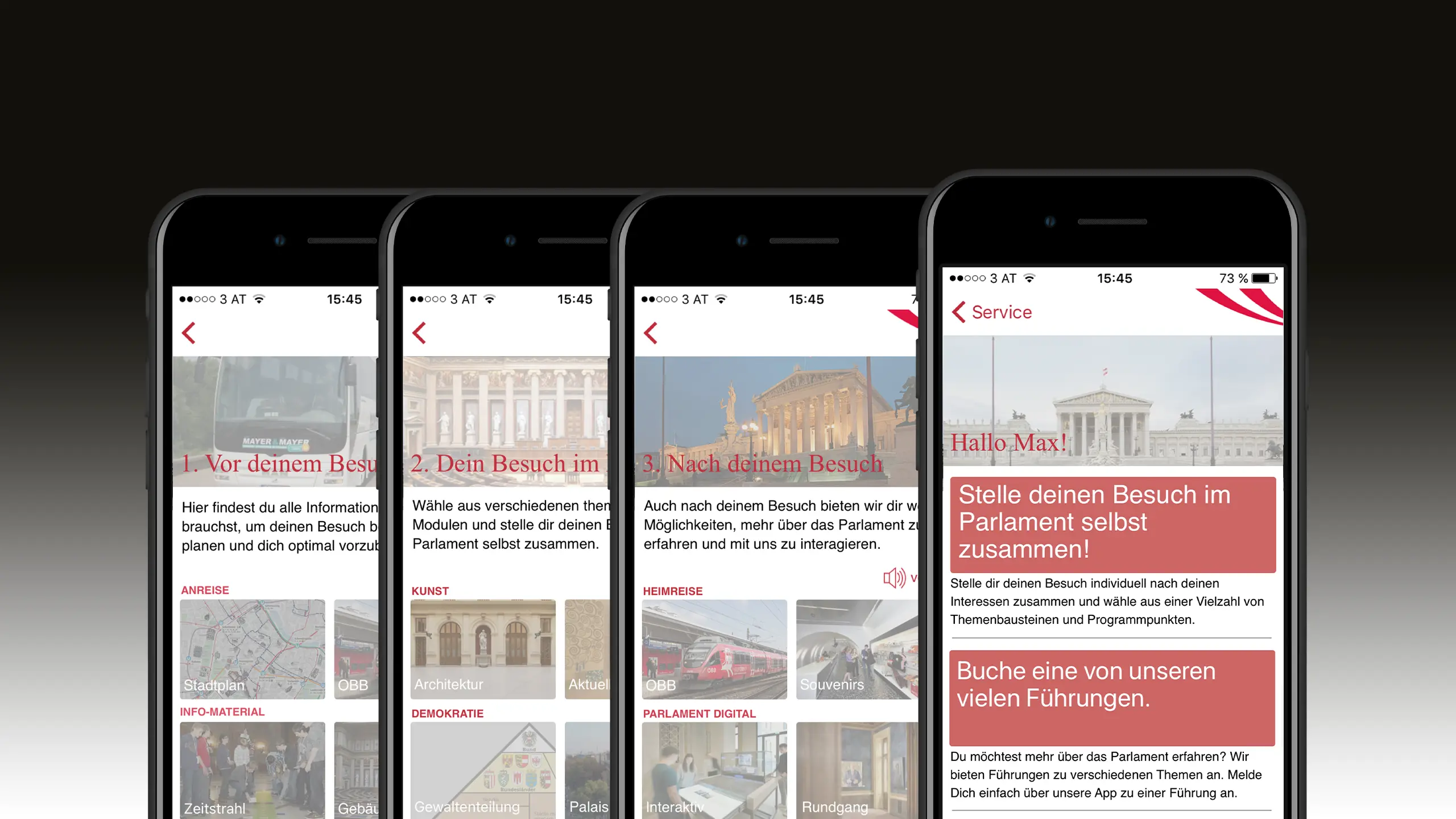
App concept prototype of "MyParliament", a digital service for planning customized visits to the Austrian Parliament.
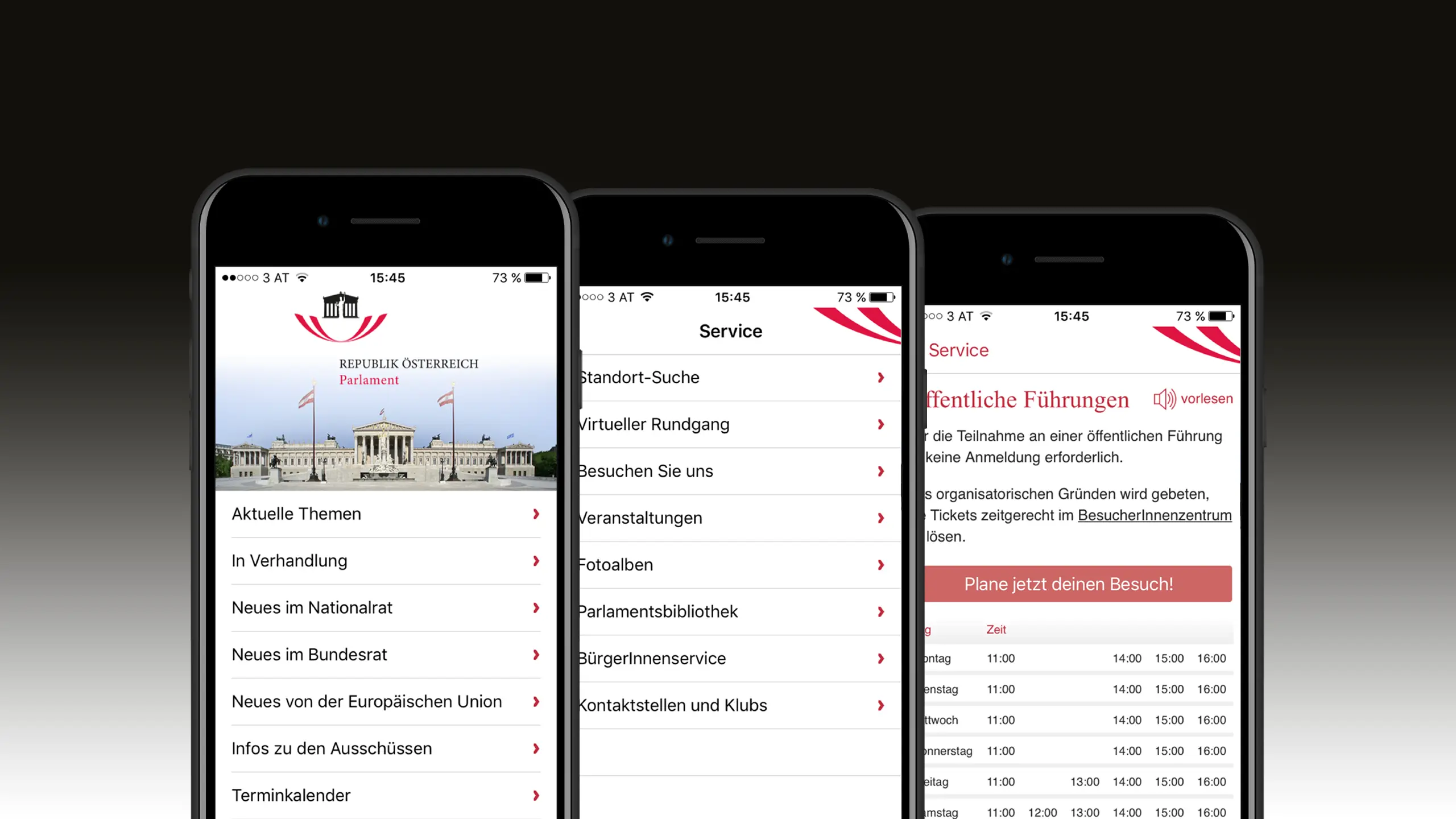
"MyParliament" seamlessly integrates with the rest of the Austrian parliament's regular app.
Project Brief:
Exploring democracy education and innovative forms of knowledge transfer with members of the Austrian parliament.
Project Focus:
Focus on young Austrians and their self-image in their political role.
Approach:
1. Content analysis, setup and design of the Parliament's website.
2. Field research through observation, interviews and surveys with visitor groups.
3. Data analysis and co-creation workshop with members of parliament using service design methods.
4. Ideation, rapid prototyping and presentation of service proposals.
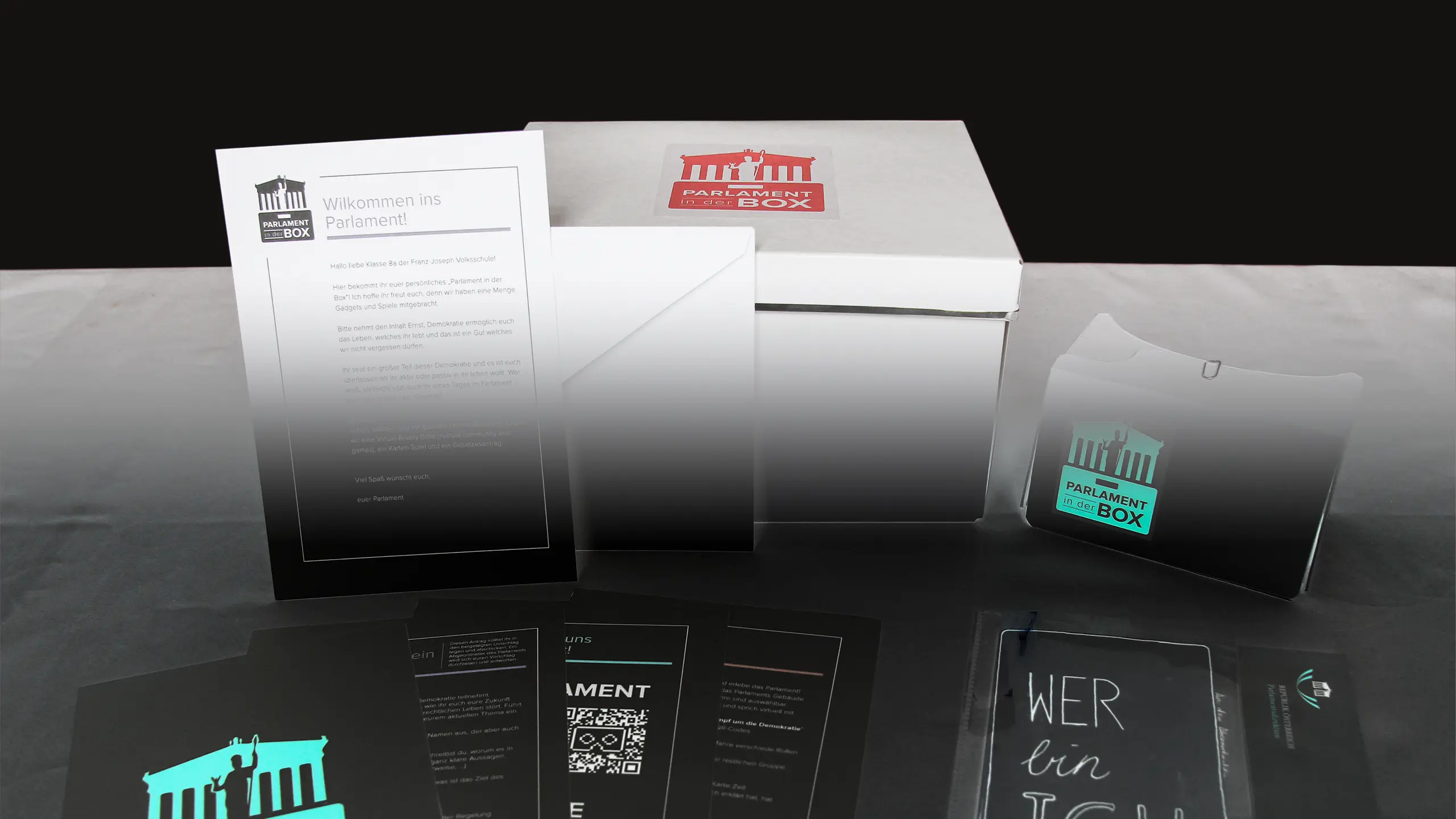
Rapid prototype of the "Parliament in the Box" service, which provides an important and comprehensive first contact with the Parliament for student groups unable to travel to Vienna, including a digital tour of the Parliament, a democracy card game & a digital community platform.
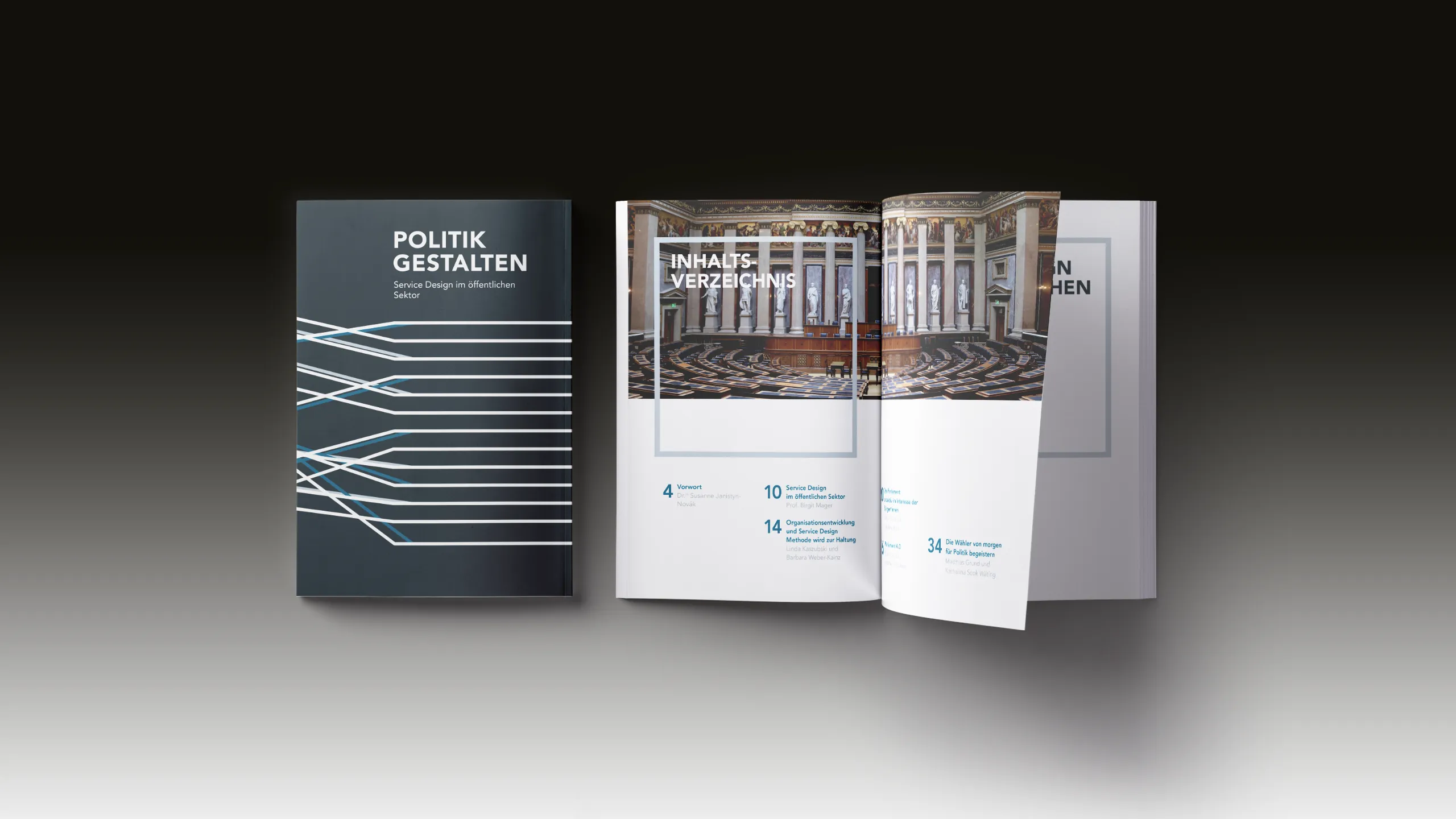
Project report, including all service concepts developed, as well as articles contributed by each participating partner.
Project Participants:
KISD: Prof. Birgit Mager, Paul Claussen, Miriam Schmalen, Dustin Schulz, Katharina Sook Wilting, Julia Beer, Santiago Echeverry Gonzalez, Katja Trinkwalder, Martin Marburger, Katharina Stahlhofen, Matthias Grund
CPlus: Mag.a Barbara Weber-Kainz, Mag.a Linda Kaszubski, Edda Leitner, Birgit Horvath, Madleine Mitrovic, Markus Gruber
Austrian Parlament: Mag.a Barbara Blümel, Mag.a Sari Krammer, Mag.a Valerie Watzek
(full case study available upon request)
Discover More
Matthias' creative practice is based on an integrated approach that flexibly combines creative disciplines, methods and ideas. There is no prescribed approach, as each project requires a different iterative process to come to life and successfully fulfill its purpose. Grounded in research and informed by current cultural phenomena, Matthias brings together intuitive ideas and experimentation in a strategic way, working collaboratively to develop creative concepts and implement them in a highly aesthetic manner. His practice ultimately translates into commercial brand identities, publications, digital interfaces, marketing and service strategies, as well as artistic research projects.